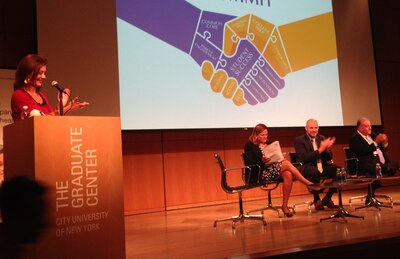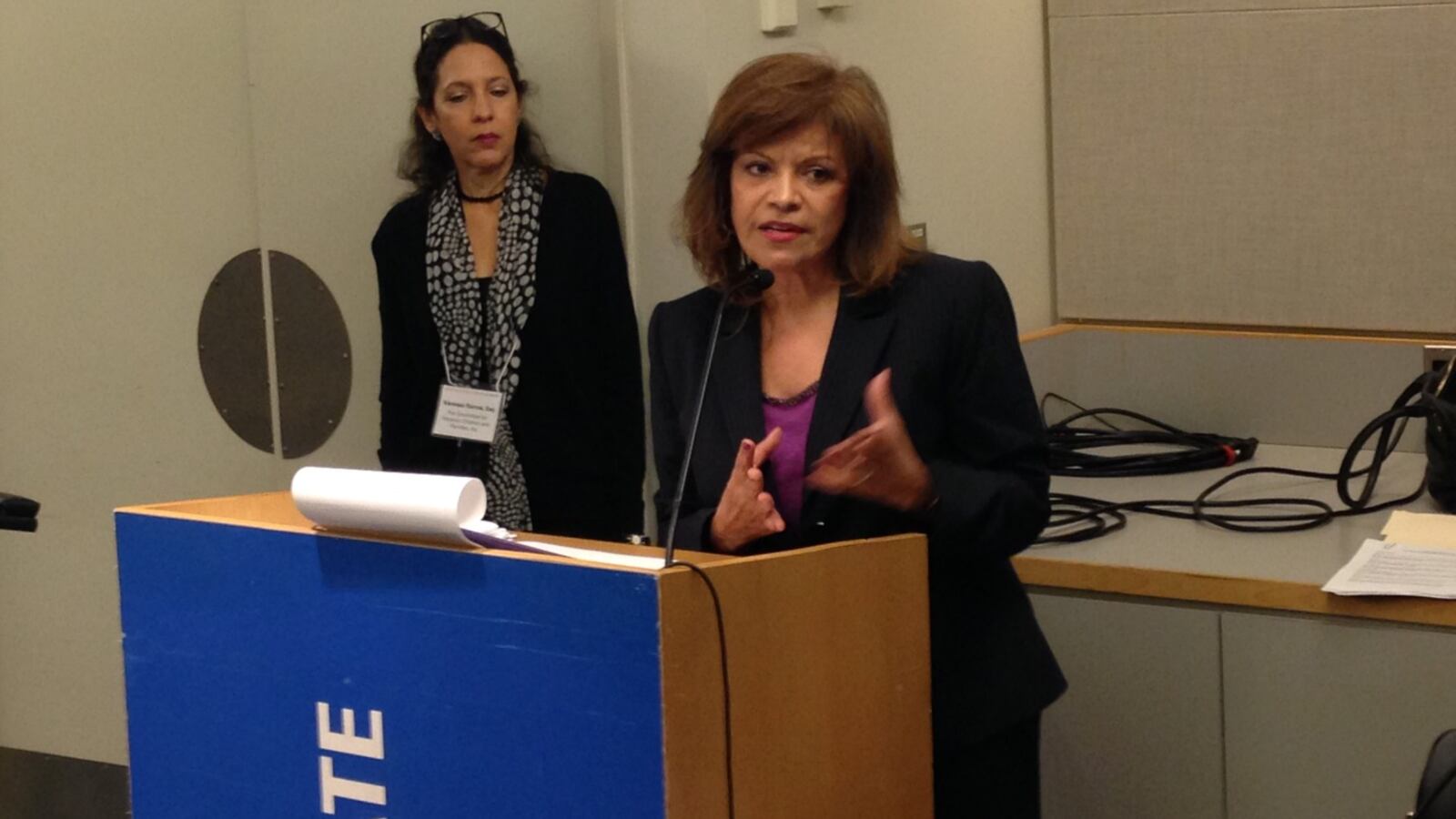Chancellor Carmen Fariña and her new chief of English-language learners outlined their priorities for those students Friday, including better training for teachers and more dual-language programs, just days before state policymakers vote on major changes to guidelines concerning students who are still learning English.
Fariña pointed to her appointment of Milady Baez, a former principal and superintendent who has overseen dual-language programs, to head a newly independent office of English-language learners as an indication of her commitment to those students, who account for one out of seven students in the school system.
“I want to tell you this is not just about words,” Fariña said in her keynote address at an education summit hosted by the Hispanic Federation, which was attended by academics, educators, and top city and state education officials. “This is a new world.”
Many of the advocates and union leaders who attended the conference have criticized the education department in the past for, in their view, neglecting non-native English speakers. But they said Friday that they believe Fariña, the Spanish-speaking daughter of first-generation immigrants, is committed to such students.
Still, they noted that the situation is dire for students who struggle with English: Just 3.4 percent of those students passed this year’s state English exams, compared to 28.4 percent of all city students. And, they added, the teachers responsible for catching them up are often under-trained and overwhelmed.
“We have to deal with the house that’s on fire,” said Michael Mulgrew, president of the city teachers union, who said he has had “constructive conversations” with Fariña about the need to boost English learners and better train their teachers. He is still awaiting a comprehensive plan, he said.
“What is the language acquisition policy for New York City?” he asked during an on-stage discussion with City Council Speaker Melissa Mark-Viverito and others. “What is the educational strategy to get a trained workforce in front of these students?”
Baez, who is only nine days into her new job, ticked off some of her plans during a panel talk.
Echoing Fariña, she pledged to send teams of experts to “aggressively” support schools as they work with English-language learners and to collaborate with their families. (During her talk, Fariña promised more English classes for parents.) Baez said these students must receive specialized services rather than be left on their own in “regular-education classes,” and that teachers must receive better training, beginning in schools of education.

She also said that 11 new dual-language programs are launching in schools this year, with more to come in subsequent years. Dual-language programs – where students are taught in both English and a second language, with the aim of becoming proficient in both – are increasingly popular among parents and educators alike, yet only 4 percent of English-language learners were in those programs in the 2012-13 school year. Instead, the vast majority are in enrolled in English-as-a-second-language programs, where the instruction is in English.
Baez’s agenda may eventually be shaped in part by changes to the state’s English-language learner guidelines, which will be voted on next week by the Board of Regents, which sets New York’s education policy.
The far-reaching changes would require districts to offer struggling English-learners extra help, and teachers and principals to attend more training sessions, among other new requirements. State officials said the amendments would represent the first significant revision to the policies in three decades.
Meanwhile, the board is considering new exit-exam requirements that could make it slightly less burdensome for English learners and other students to graduate. The state is also seeking a federal waiver that would let recent immigrants spend an extra year in the school system before they must sit for the state exams.
Carmen Alvarez, the head of special education for the city teachers union, said she had renewed faith in the city’s commitment to English-language learners under Fariña’s leadership. But she emphasized to city officials how great those students needs are – including the rarely discussed group of English-language learners with disabilities, who accounted for one in five English-learners in 2012-13.
“Milady,” Alvarez said during the panel discussion, “we’ve got a lot of work to do.”


